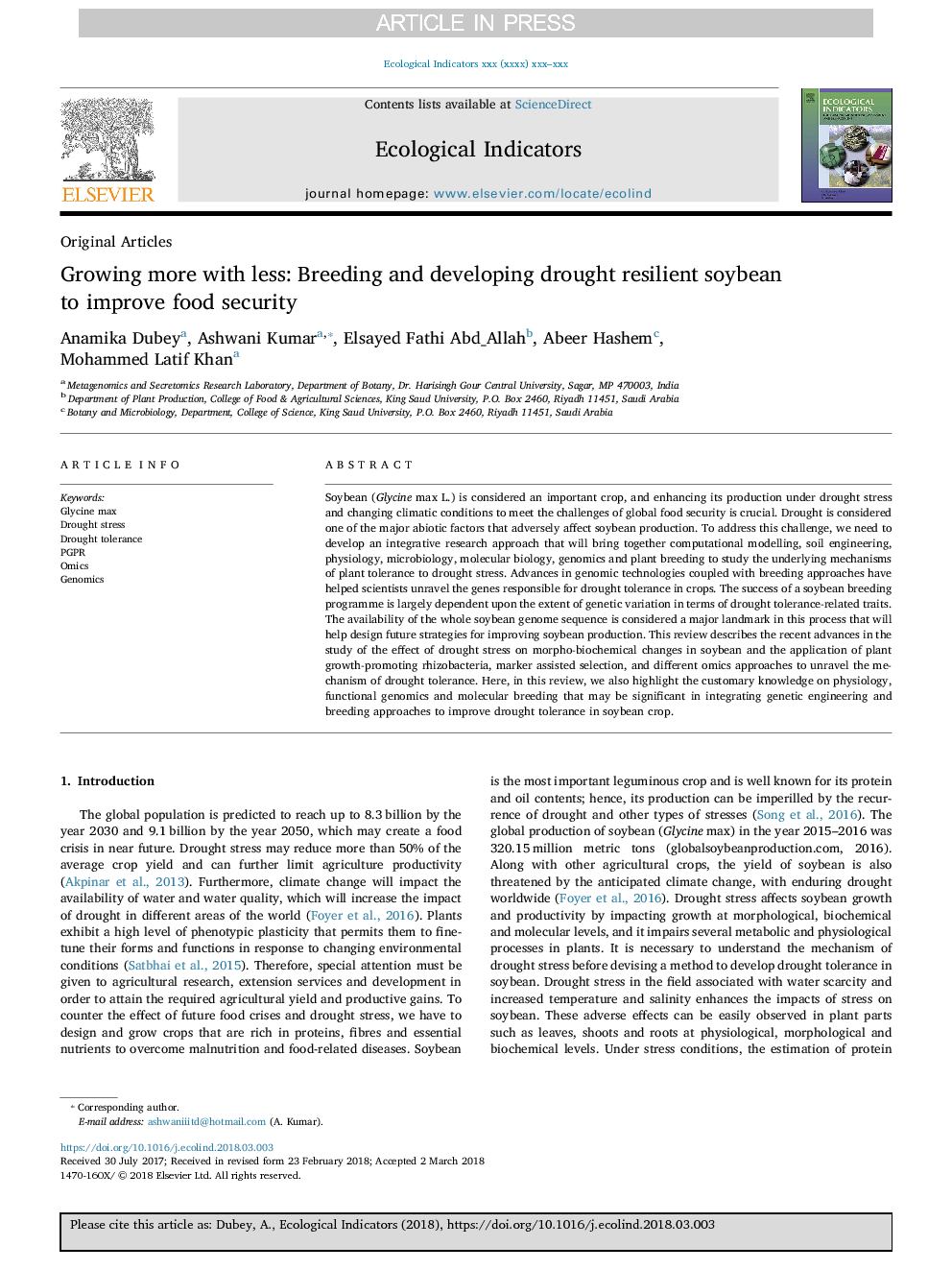ترجمه فارسی عنوان مقاله
مقالات اصلی با کمتر شدن: پرورش و توسعه سویا مقاوم در برابر خشکسالی برای بهبود امنیت غذایی
عنوان انگلیسی
Original ArticlesGrowing more with less: Breeding and developing drought resilient soybean to improve food security
| کد مقاله | سال انتشار | تعداد صفحات مقاله انگلیسی |
|---|---|---|
| 161934 | 2018 | 13 صفحه PDF |
منبع

Publisher : Elsevier - Science Direct (الزویر - ساینس دایرکت)
Journal : Ecological Indicators, Available online 10 March 2018

